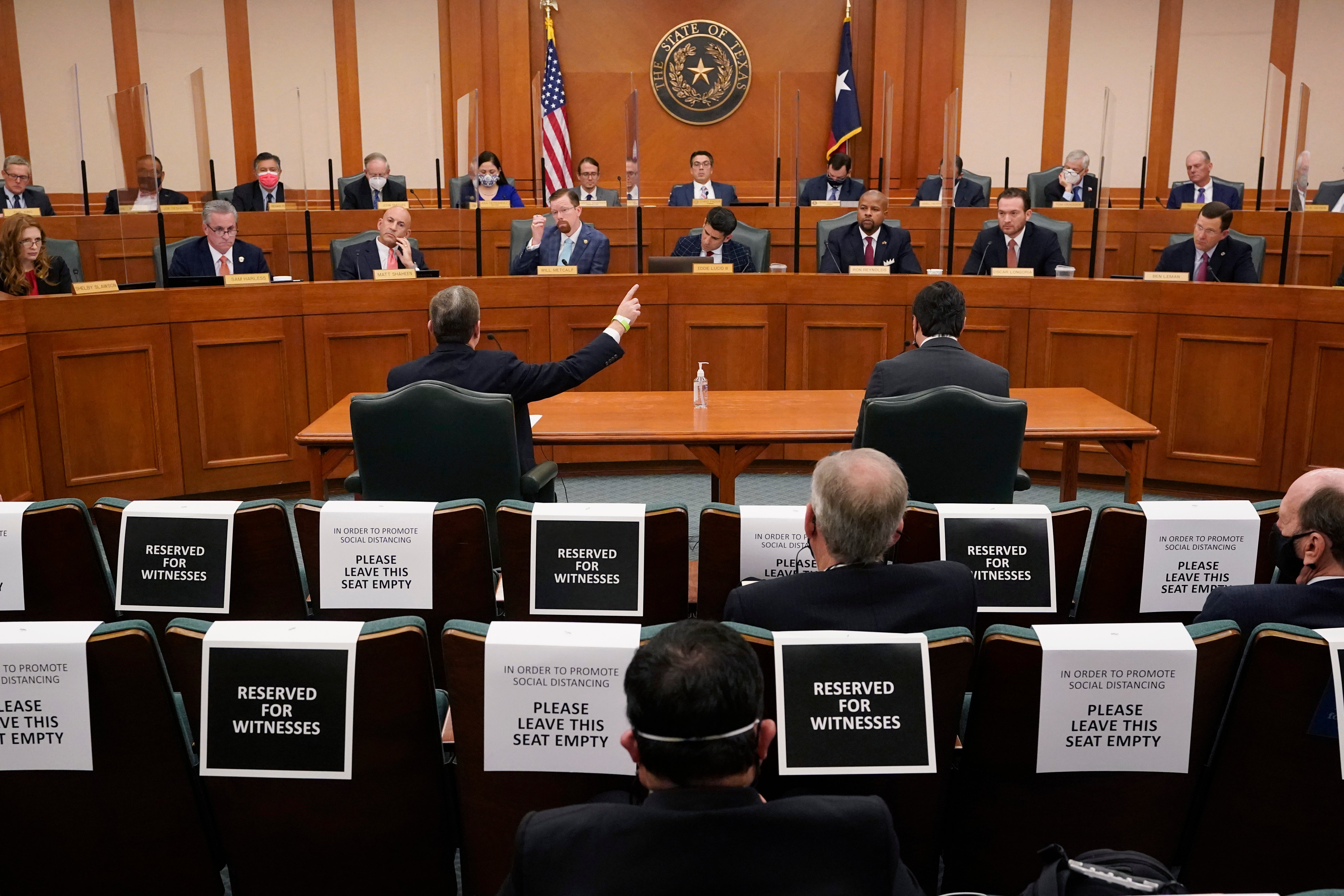Texas' fix after blackout doesn't dwell on climate change
Texas’ biggest fix to February’s deadly winter blackout that left more than 4 million people without power puts more focus on projections by the state’s climatologist but does not dwell on climate change after a deep freeze buckled the state’s unprepared electric grid

Texas' biggest fix to February's deadly winter blackout that left more than 4 million people without power puts new attention on projections by the state's climatologist but does not dwell on climate change after a deep freeze buckled the state's unprepared electric grid.
A far-reaching bill sent Sunday night to Republican Gov. Greg Abbott would require some power generators to winterize against extreme cold following one of the most massive blackouts in U.S. history. Experts praised some reforms as significant but say concessions to Texas' powerful oil and gas industry still leaves the grid vulnerable.
At least 151 people died in the winter storm and ensuing blackout, according to the tally kept by state officials, although the actual number of victims is widely believed to be much larger.
President Joe Biden’s national climate adviser called the winter storm a “wake-up call” for the United States to build energy systems and other infrastructure that are more reliable and resilient in the face of extreme-weather events. But in the Texas Capitol, Republican lawmakers sidelined discussion of climate change while trying to get to the root of the blackout and come up with ways to prevent it from happening again.
“Obviously, we have to be able to operate during those type of situations," said Republican state Rep. Chris Paddie, who carried the bill, while being pressed on climate change before a final vote Sunday. “As far as the reasons for that, that's always a point of discussion."
A last-minute addition to the bill requires energy regulators to consider in their planning projections by the state's climatologist. John Nielsen-Gammon, who has been the Texas state climatologist for two decades, said he was not asked to testify by lawmakers after the blackout but did provide input to the some offices that reached out.
“The cold wasn’t unprecedented, but the combination of extreme cold and widespread snow was extremely unusual," Nielsen-Gammon said in an email. “ Also, I volunteered the information that climate change was probably making such events less likely rather than more likely.”
Fallout from the outages has slowed since after a burst of firings and resignations of officials involved. Attention to the blackouts also dimmed in the state Capitol as GOP lawmakers raced to pass staunchly conservative laws over abortion, guns and voting restrictions in the final weeks.
During February’s storm, demand for heat soared as temperatures plunged. Roughly a quarter of Texas’ natural gas supply was knocked off line. Failures by fossil fuel plants, including natural gas facilities, contributed twice as many outages as solar and wind generators, according to the Electric Reliability Council of Texas, the state’s grid operator.
After Hurricane Harvey slammed into Texas in 2017, a 200-page state report warned that powerful natural disasters will become more frequent because of a changing climate but did not use the phrase “climate change.”
“It’s very hard to prepare for something you’re scared to name,” Democratic state Rep. Erin Zweiner said.
Bookmark popover
Removed from bookmarks